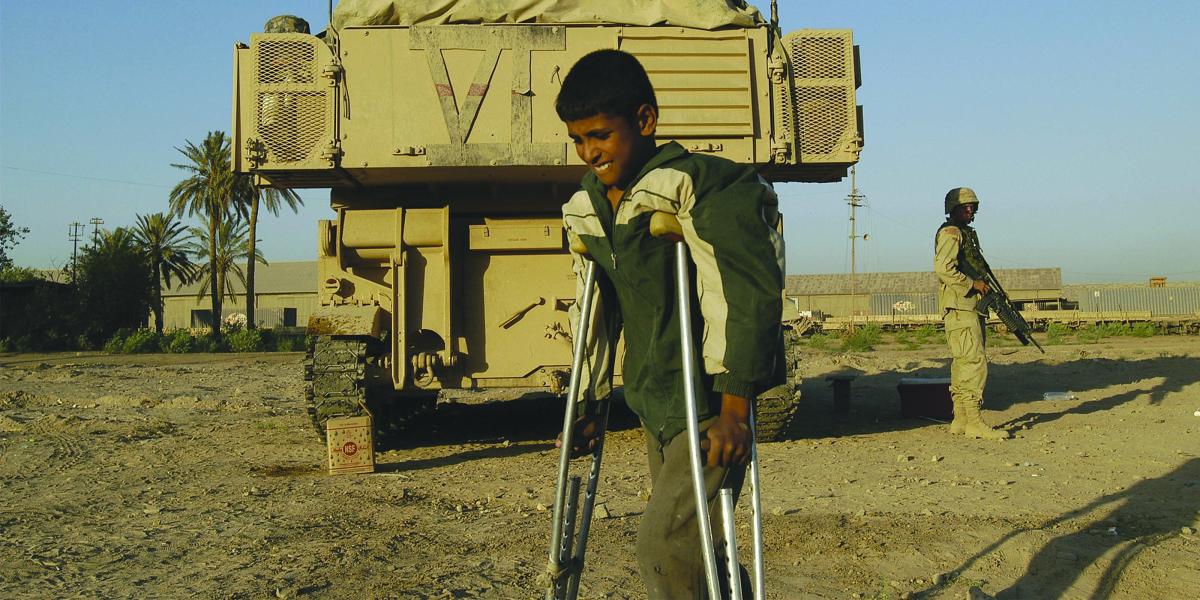Returning Health to Iraq
Since the U.S. invasion of Iraq five years ago, more than half of Iraq's doctors have fled their country in search of safer places to practice medicine. Those who stayed have faced bombed health care facilities, threats of kidnapping and death, and inadequate security.
Thamer Kadum Yousif, MBChB, DCM, MsC, and Namir G. Al-Tawil, MD, DCM, are among those who chose to remain. This summer, however, they left their homeland for two months to study public health at the Bloomberg School.
Thamer and Namir were the first two physicians to participate in a program developed by Crisis Health Initiative (CHI)—a nonprofit group launched last year by Master of Public Health alumni of the Bloomberg School—to build educational partnerships between Iraq and U.S. universities with a focus on rebuilding Iraq's health care and medical education systems. The School's Center for Refugee and Disaster Response funded the CHI project.
Both physicians pursued Summer Institute courses in epidemiology and biostatistics, health policy and management, and humanitarian assistance and disaster epidemiology. Namir says he particularly valued the opportunity to learn from public health experts who literally "wrote the book" in their fields. "It's different from being taught by someone who's only read the book," says Namir, an assistant professor in Community Medicine at Hawler University College of Medicine in the Kurdish region of northern Iraq.
"We wanted to assist the doctors who were brave enough and selfless enough to stay in the country in carrying out their important work," says Melinda Morton, MD, MPH '08, a CHI founder, Sommer Scholar alumna, and emergency medicine resident at Johns Hopkins Hospital.
Less than a month after returning to Iraq, both physicians began putting into practice some lessons learned at the Bloomberg School.
Thamer, chair of Community Medicine at the University of Baghdad's Alkindy College of Medicine, has begun a weekly continuing education program and has met with officials from Iraq's Ministry of Health to discuss ways to improve the country's medical schools.
Namir, whose particular interest is biostatistics, has proposed a continuing education lecture series on the topic for faculty; he also submitted a plan to develop a center that would provide guidance in research methodology to investigators.
Both doctors note that Iraq's health care system—already severely weakened under Saddam Hussein's regime—further declined after the U.S. invasion. Terrorists looted hospitals of drugs and equipment, and short-staffed medical facilities couldn't handle patient caseloads. Insurgents threatened many health care professionals who opposed their agendas.
"They want to paralyze daily life activities in Iraq," says Thamer. "It's not uncommon to find a paper on your desk saying that you are a part of the government and if you don't stop teaching you should be assassinated."
The physicians report some recent good news: Maternal and infant mortality rates are going down. Reconstruction of damaged health care facilities is under way. Security is better.
"Improving the security situation," says Thamer, "will be the main tool to improving health care services," and will pave the way for addressing other priorities: increasing the almost-nonexistent mental health services, strengthening the quality of teaching at medical schools and training more physicians in primary care medicine.
Thamer and Namir plan to do their part to pass on the knowledge they acquired at the Bloomberg School to their fellow Iraqis. "There are risks and we have to accept them, but I'm still enthusiastic," Thamer says. "I'm not ready to leave at the hands of terrorists or extremists who want to control the country."
